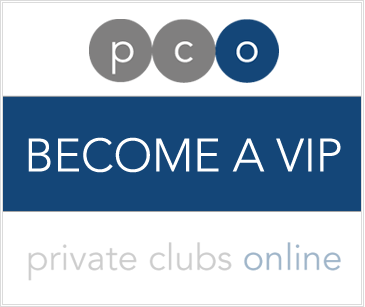Chargers FanFest 2011
“It’s kind of like when a dad takes his kid to the candy shop,” he explained. “You’re outside the candy shop, you’re looking at the candy, but you’re not allowed to go in and get the candy. And then your dad just turns around and takes you home. That’s exactly what being a Chargers fan is like.”
That’s how Oak Park/San Diego Coutny’s Lee Norman explains the psychology of being a Charger fan and Super Bowl dreams. (ARTICLE) As a life-long Charger fan myself, I think that’s pretty sad.
I was a disappointed to see the promotions for FanFest 2011. Only kids ages 6 -1 4 were allowed on the field, and only the first 2000 with wrist bands. The Chargers sited safety as a reason they have strict rules in place. Each kid was allowed only one personal item to sign. So if you had a Philip Rivers jersey, you either got his signature only or sacrificed your jersey to get autographs from more than one player. Since it was kids-only on the field, there were no doting parents taking pictures with the family. The Chargers tweeted that there were other open practices to attend, if adults wanted to get autographs.
It was pictures like this one from the event, which made me scratch my head. Players sitting at a table…a barrier between them and their fans.
I treasure the days when players hung out after a pre-season open practice and talked to us kids (and parents), told stories, took pictures and signed autographs. We didn’t have scheduled FanFest’s in the early 80’s, but we didn’t need them…the players were available and able to interact freely with fans, no rules, no wristbands, no limits on personal items brought to sign. I have the memory of shaking Dan Fouts’ hand, kissing Rolf Benirschke on the cheek and taking pictures with the likes of Kellen Winslow – more valuable to me than anything I have that was signed.
Running a business focused on marketing and branding makes me look at events and programs differently. Things have changed a lot since I was a pre-teen and along with the events, marketing efforts and PR methods have changed dramatically. I wanted to see more updates by players individually, a flurry of posts and tweets during the event and connecting digitally with the fans. Contests, games and prizes are an easy way to incentivize fans and help make those who couldn’t attend the event feel like they were there.
I can appreciate that Charger’s FanFest 2011 may have come together quickly due to NFL lock-outs, but believe my Chargers can be ground breakers and standard setters, even with short notice. Fans just want a moment to linger in the candy store and a leave with good taste to savor. FanFest is the perfect opportunity for a sugar rush.
Did you go to FanFest 2011? What are your thoughts? What would have given the day a more personal touch?
You can catch a few photos and videos of FanFest on the Charger website: http://www.chargers.com/
Or here’s a couple articles wrapping up the day: SignOnSanDiego NBC Photo Gallery
Facebook Deals a done deal?
On April 26th, I eagerly posted the announcement that Facebook Deals had come to San Diego. Facebook said at the time,
“A few months ago we launched Check-In Deals, to help you get special offers when you check in at local businesses from your mobile. Today we’re going a step further and testing a new feature to help you find fun experiences to share with your favorite people: Deals on Facebook.
Initially, Deals will be available to people in Atlanta, Austin, Dallas, San Diego, and San Francisco and we hope to expand this test to other cities in the future.”
I looked at the Deals page today and noticed there are a whopping six (6) deals posted for all of San Diego. There are 15 deals on offer in San Francisco, 12 in Austin, eight in Dallas and 12 in Atlanta. Considering these are all test cities, I wonder how such few participating retailers and restaurants can be considered a success?
A few problems I see with the Facebook Deals program is that the page is not easily found on the news feed. If you haven’t visited the section recently, you’ll have to actually click the “more” button to get the drop-down menu which also includes Pages, Notes and the like. People are lazy. Not many will actively seek the Deals page.
I also mentioned in my previous post that I was not eager to provide Facebook with more information about me, my hobbies, interests nor lifestyle habits. I understand that by clicking “LIKE” on any of the deals that that information is stored and will be used to present similar adverts in the right-hand column. (Although the FB algorithms must be off today because the suggested pages for liking are Skittles and Sponge Bob Square Pants.)
With so few deals available, I’m not tempted to participate. It makes me wonder how aggressively Facebook is courting local businesses to put something on offer? Glass blowing and night photography are two of the six discounts on offer. Not too sexy. If Facebook actually wants to compete with Groupon and Living Social, they need to get their booty in gear and provide some kind of encouragement for businesses to participate if they imagine the Facebook Deals to take over other daily deals programs.
I mentioned also in my previous post that Facebook Deals should prove successful because as a shopper, I can check my Facebook News Feed and look at the Deals all in one visit, versus traveling to other websites to take advantage of coupons. Facebook is really not playing up this aspect of convenience and have done very little advertising since the first initial splash in April. GIZMODO did a review of all the daily deals platforms recently, but it is hard to find an article which highlights Facebook’s success in this area versus a mere comparison against Google, Amazon, etc.
Facebook Live (http://on.fb.me/facebookhq) is geared up for an “exciting product announcement” tomorrow. I’m curious if it’s the replacement for Facebook Deals, as it seems this program has sunk before it even had a chance to swim.
What are your thoughts on the Facebook Deals launch? What would you do differently to ensure the success of this program? How can Facebook better compete with Groupon and Living Social? And finally, have you used any of the Facebook Deals? Eager to hear your answers in the comments. Cheers!
Facebook Deals
Today Facebook announced that San Diego was one of just five cities chosen to help launch the new DEALS ON FACEBOOK program.
Facebook says, “A few months ago we launched Check-In Deals, to help you get special offers when you check in at local businesses from your mobile. Today we’re going a step further and testing a new feature to help you find fun experiences to share with your favorite people: Deals on Facebook.
Initially, Deals will be available to people in Atlanta, Austin, Dallas, San Diego, and San Francisco and we hope to expand this test to other cities in the future.”
To acces deals, scroll down the left menu bar on your profile page. Clicking “Deals” will show you a page with all that’s on offer, including messages letting you know which friends have liked that deal.
Facebook is counting on the popularity of the LIKE button and word-of-mouth advertising to promote what deals available and for users to see what their friends are liking. I’ve already subscribed because I am interested to see what offers pop up and admire Facebook’s strategy. It’s convenient, too because I don’t have to go to another website like GroupOn or LivingSocial to see what offers are available in my community.
What I don’t like about the deals program on the Facebook platform is that it gives Facebook just that much more information about me. For small businesses hoping to gain better exposure and not go broke on traditional advertising methods, participating in the Facebook Deals should prove a huge advantage.
Have you subscribed yet? Will you use the deals offered or are you leery of FB knowing too much about you? Will you promote your small business through Facebook?
Social Media Report
Some people just don’t get social media. And that’s ok, because the format is constantly evolving and changing and those of us who are enthusiastic participants like to try new ideas and see what sticks. But when you are attempting to make an authoritative report on the effectiveness of social media and purchase power, you probably better have a faint clue how social media works, and perhaps an inkling of how much power the medium has when used effectively.
THE PURCHASE PATH OF ONLINE BUYERS For eBusiness & Channel Strategy Professionals was released today by Forrester Research in cooperation with GSI Commerce. The report comes to the conclusion that “The truth is that social tactics were largely ineffective in driving sales.”
I’m surprised that this report is receiving the attention that it is, given how flawed the reporting methods are. A few missed details with this report.
1. Social Media
The report fails to answer some key questions. Namely: What social media outlets were engaged? What messages were posted? How often were sites updated? Did retailers respond to mentions or did they ignore customer contacts? Did all 15 of the retailers use social media in the same exact manner, or was there a vast difference in tactics?
2. Timing
The report says, “Data was captured from November 12, 2010 to December 20, 2010. Thanksgiving weekend data was captured from 12 a.m. on November 25, 2010, through 11:59 p.m. on November 28, 2010. Cyber Monday data was captured on November 29, 2010. ”
So on November 12th, 18th, December 3rd and 13th for example, what time was the data captured? Was the data not being captured 24/7 between 11/12/2010 and 12/20/2010? What reasoning was behind the choice of that time period (other than measuring effect on holidays sales)? Is this a sufficient time period to determine effectiveness? Were social media updates being posted between working hours only or throughout a 24 hour period? Were messages posted every day?
3. Collection
The report offers measurement as “social media alone” as a touchpoint prior to purchase and focuses on the ineffectiveness of social media. If Forrester actually understood social media, they would understand that a well planned online marketing strategy would never consider social media alone, but a smart combination of online tactics. I don’t think any of us who are in the habit of helping businesses use social media would ever recommend a social media alone strategy, but would certainly insist that a no social media policy would in fact negatively impact sales as well as brand image and customer retention.
Clearly this report raises more questions than it provides answers. And the few findings that are stated are so far off the mark, it’s laughable. In fact, I would call it ineffective in driving social media strategies.






